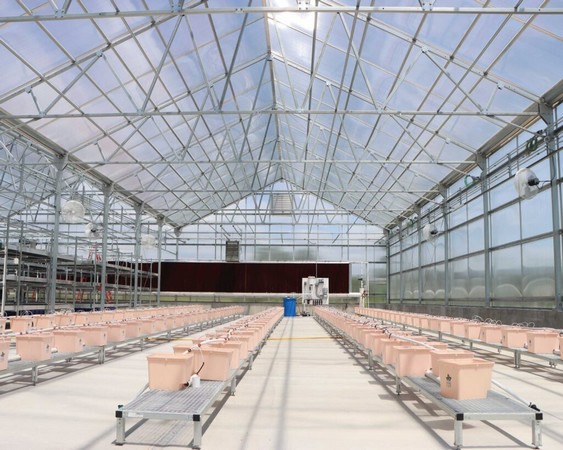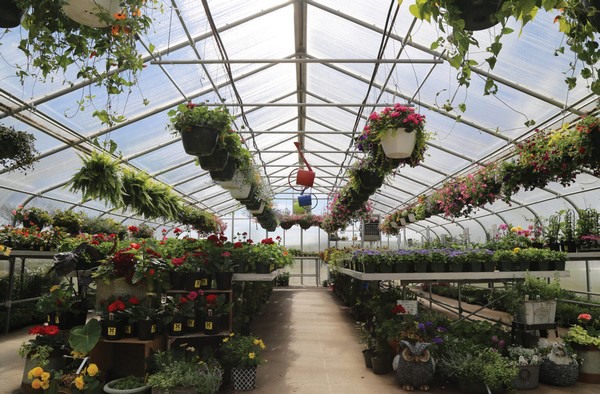The quality of a greenhouse plays a major role in an operation’s success. Still, growers are often so focused on the equipment that goes inside their structure that they overlook the building materials used to actually construct the greenhouse. This can become a costly mistake, as growers may have to replace certain aspects of their structure sooner, or the quality of their harvests can suffer.
Whether growers are building out a completely custom greenhouse or choosing between various greenhouse kits, it’s important they get a structure that employs the highest-quality greenhouse materials possible. This will not only help increase the lifespan of their greenhouse but also facilitate a superior growing environment that allows them to produce healthier, more robust crops.
With all the different types of greenhouses out there, it’s only natural that operations have questions about their potential growing setup. Below, Growspan answered five of the most common inquiries they get regarding greenhouse materials, so growers can make a detailed plan before obtaining their structure.

How do you know the best cladding material for your greenhouse?
While there are several types of cladding for greenhouse growers to choose from, polycarbonate is generally going to have the most positive impact on their crops over time. Greenhouse film and glass are also viable options, but growers are looking to incorporate the best greenhouse materials will want to opt for a multi-layer greenhouse plastic, like twin-wall polycarbonate.
This greenhouse covering material offers several benefits that improve the quality of a structure and the crops being produced. To start, twin-wall polycarbonate sheets possess a high R-value, which means they provide excellent insulation. By bolstering their structure’s insulation with the right greenhouse materials, operations can more easily maintain interior temperatures, as well as lower their overall utility costs.
Polycarbonate also does a great job of providing crops with optimal amounts of light. With access to high levels of light transmission and diffusion, greenhouse crops can grow exponentially, leading to larger yields each growing cycle.

When steel is galvanized, it means it has gone through a process where it is applied with a coating of zinc. This coating extends the life expectancy of steel by providing additional rust protection, allowing it to withstand corrosive environments and harsher weather.
As a greenhouse frame, galvanized steel offers one of the best greenhouse materials available to growers. Since operations will ultimately want to end up with a long-lasting structure, it’s important for them to build their greenhouse using strong components, like galvanized steel or aluminum.
GrowSpan employs galvanized steel for the frame of several structures, including the Series 2000 Commercial Greenhouse, which features a triple-galvanized steel frame. To learn more about the S2000 and its greenhouse materials, click here.
What is the best floor for a greenhouse?
Two effective greenhouse flooring options are poured concrete and gravel. Despite not being one of the most prominent greenhouse materials that growers think of, the type of floor they use can have a considerable impact on the overall quality of their structure.
Poured concrete is easy to clean and walk on, which can help reduce maintenance requirements and make it easier to retain healthy crops. If poured properly, a concrete floor should also assist with draining away excess water after irrigation.
Gravel is a more cost-effective flooring option, but it can be just as effective for commercial operations. Gravel offers adequate drainage and requires limited cleaning. When growers cover their gravel floor with weed cloth, they can also help prevent any weeds from popping up inside their structure.
If operations want a greenhouse with a gutter-connect design that allows for future expansion, gravel flooring can simplify that process and help lower the overall cost. No matter what growers choose, it’s important the greenhouse materials they use for their floor promote sufficient drainage and help prevent weeds and pests from entering the structure.
What is the best way to heat your greenhouse?
A high R-value cladding, like twin-wall polycarbonate mentioned above, will encourage effective heating, but growers will also want to complement their greenhouse materials with a high-efficiency heating system. The right heater can go a long way towards maintaining a uniform growing environment and saving on utility costs.
For commercial growers with large greenhouse bays, installing multiple heaters in opposite corners of their structure can also help optimize heating. As opposed to using one heater for the entire greenhouse, this will distribute heat more evenly and allow growers to achieve their ideal temperature range faster. Subsequently, operations can limit energy consumption and reduce their monthly expenses.
Growers can also look to incorporate a heating system directly into certain greenhouse materials, like the foundation. This can be done through radiant heating, which is typically installed under the concrete flooring, with the goal of heating the room from the bottom up.
How long can I expect my greenhouse to last?
Although this depends on the quality of the greenhouse materials being used, growers can expect a structure with the right components to last years without breaking down.
In both single-layer and twin-wall, GrowSpan’s polycarbonate plastic sheets feature a ten-year warranty. To potentially increase the life expectancy of these greenhouse coverings, operations can treat their polycarbonate panels with a UV protectant that helps prevent fading or discoloration.
The frame should last even longer than the cladding, particularly if growers utilize galvanized steel. With a custom GrowSpan greenhouse, frames can also be engineered to match each operation’s individual location and climate. This will ensure growers have the ideal greenhouse materials for their local requirements, allowing the structure to withstand just about any extreme weather, so they can continue their growing season year-round.

 GrowSpan Greenhouse Structures
GrowSpan Greenhouse Structures